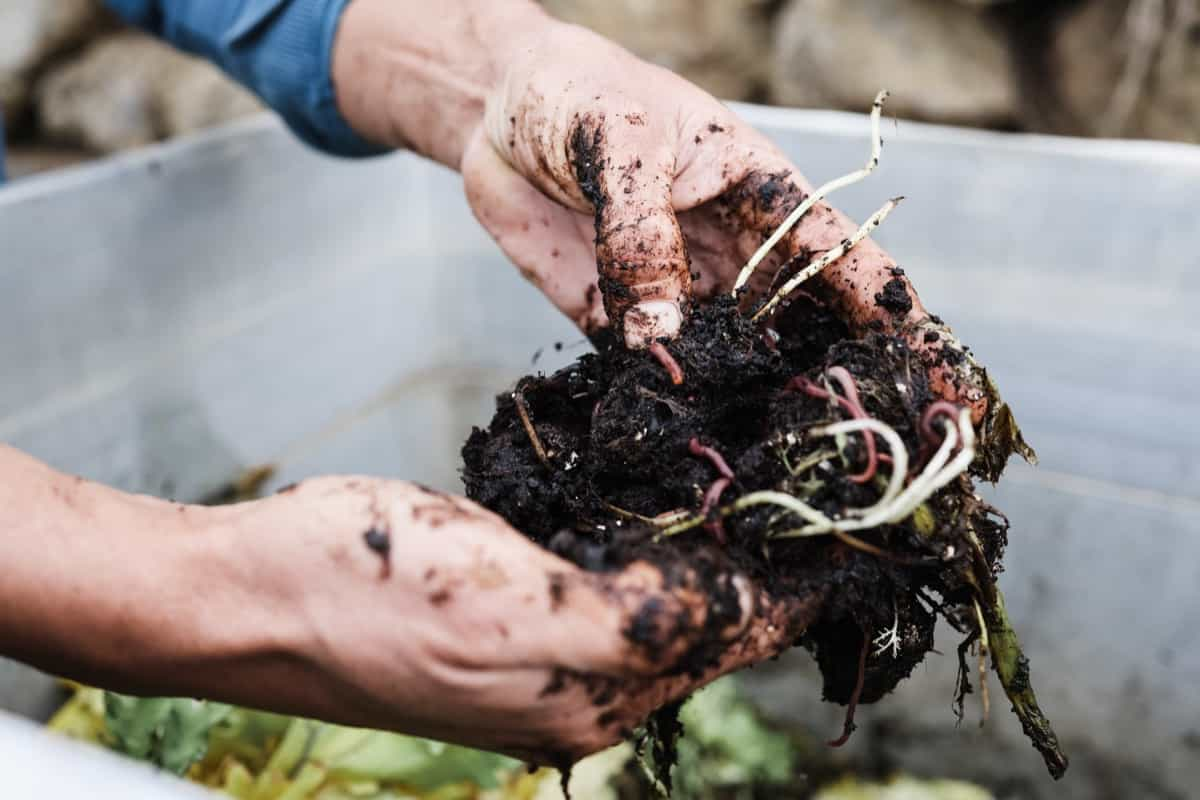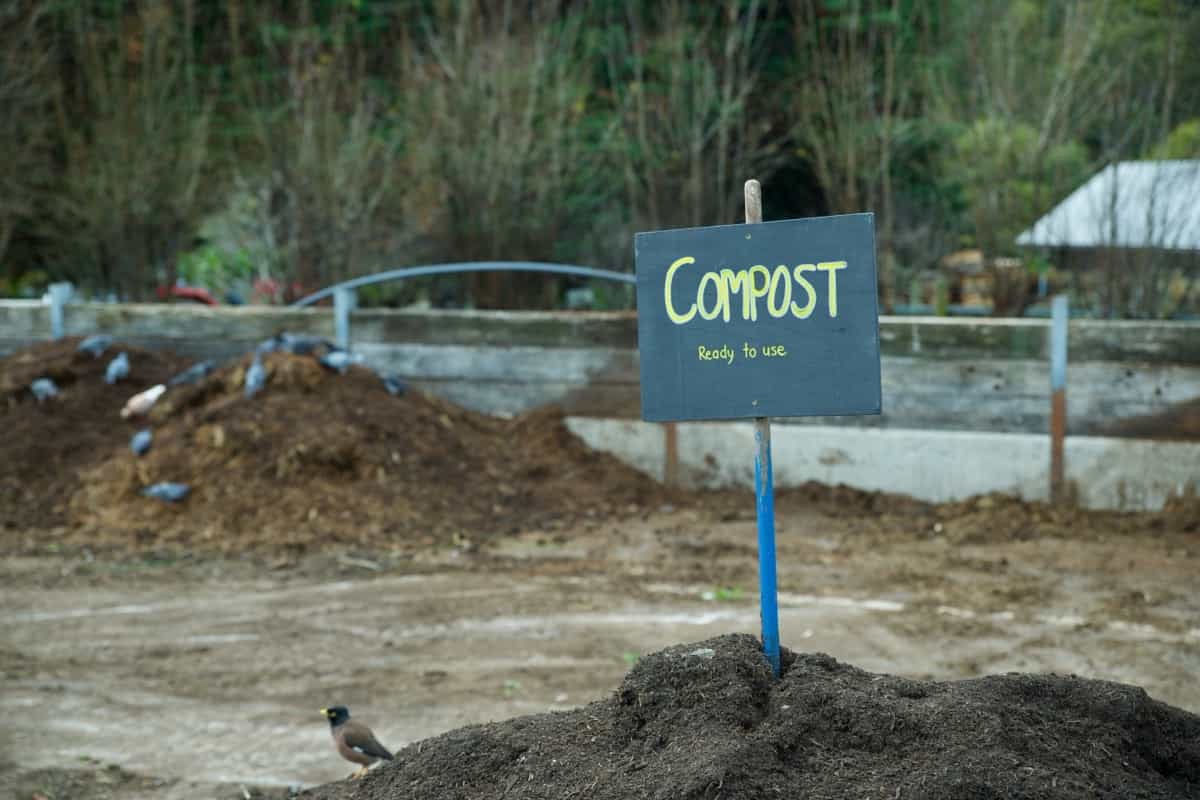Neem oil has long been used in traditional medicine and agriculture. Its beneficial properties also extend to composting, making it a valuable tool for enhancing organic compost. In addition to repelling insects, neem oil helps control fungal diseases in your compost. Neem oil’s anti-fungal properties help prevent these issues and promote healthier compost.

How to Use Neem Oil in Composting
Benefits of Using Neem Oil in Composting
Neem oil contains natural compounds that accelerate the breakdown of organic matter, resulting in faster decomposition and nutrient release. It helps deter pests such as flies, gnats, and beetles from infesting your compost pile and causing damage. By keeping these pesky critters at bay, neem oil ensures that your compost remains healthy and free from harmful infestations.
Neem oil plays a crucial role in controlling fungal diseases in composting. Fungi can thrive in moist environments like a composter, but adding neem oil helps prevent their growth by disrupting their life cycle. Furthermore, neem oil enhances nutrient retention and improves soil health in the finished compost.
How Neem Oil Enhances the Decomposition Process in Composting
Neem oil promotes decomposition by increasing microbial activity in the compost pile. Microbes break down organic materials into simpler compounds that plants can easily absorb. Neem oil acts as a stimulant, encouraging these beneficial microbes to thrive and multiply, thus speeding up the decomposition process.
Additionally, neem oil contains azadirachtin, a compound known for its insecticidal properties. Furthermore, neem oil has anti-fungal properties that can inhibit the growth of harmful fungi in your compost pile. Neem oil aids in retaining essential nutrients during the composting process.
Neem Oil as a Natural Insect Repellent in Compost Piles
Compost piles are a breeding ground for insects like fruit flies, gnats, and beetles. These pests disturb the natural decomposition process and spread diseases among plants when the compost is used as fertilizer. This is where neem oil steps in as a natural and eco-friendly solution. The strong aroma of neem oil is a deterrent to insects, making them steer clear of your compost pile. Its bitter taste also discourages them from feeding on organic matter within the pile.
In case you missed it: How to Use Neem Oil in Hydroponic Gardening: Organic Pest Control in Hydroponic Farming

Using neem oil in your composting routine allows you to effectively control pest infestations without using harmful chemical pesticides that may harm beneficial organisms. To apply neem oil to your compost pile, dilute it with water based on the manufacturer’s instructions and spray it evenly over the surface of your heap or bin. Repeat this method every few weeks or whenever you notice an increase in insect activity.
The Role of Neem Oil in Controlling Fungal Diseases in Composting
Neem oil is well-known for its anti-fungal properties, making it an excellent natural solution for controlling fungal diseases in composting. The active compounds found in neem oil have been shown to inhibit the growth of harmful fungi while allowing beneficial microorganisms to thrive. Using neem oil in your composting process ensures that the organic matter breaks down effectively without being compromised by fungal infections.
This leads to a higher quality product that will benefit not only your plants but also the overall health of your soil. Its natural insect-repellent properties make it an ideal choice to keep pests at bay without using chemical pesticides.
Neem Oil’s Impact on Nutrient Retention and Soil Health in Compost
Neem oil helps enhance the breakdown of organic matter, releasing valuable nutrients into the soil. As the decomposition occurs, neem oil acts as a catalyst, converting plant materials into rich humus. This humus contains essential macro and micronutrients vital for plant growth and development.
Moreover, neem oil improves soil structure by increasing water-holding capacity and promoting better drainage. It can help control harmful pathogens that may be present in compost piles, reducing disease risk for plants when applied to garden beds or incorporated into potting mixes.
Using Neem Oil to Suppress Weed Growth in Compost Bins
Neem oil can disrupt its growth cycle. It contains compounds that inhibit the germination of weed seeds and impede their root development. Neem oil also has allelopathic properties, which release chemicals that hinder the growth and development of other plants around it. Applying neem oil to your compost bins or piles creates an inhospitable environment for weed seedlings to take hold and thrive.
Use neem oil as a weed suppressant in your compost bins, dilute it according to the instructions, and spray it onto the surface of the pile or bin. Cover all areas thoroughly, but avoid saturating too much, as excessive moisture can hamper decomposition.
Neem Oil’s Effect on Odor Reduction in Organic Composting
Neem oil acts as a natural deodorizer and helps neutralize foul odors. Furthermore, neem oil contains compounds like azadirachtin that have been found to suppress the activity of microorganisms responsible for producing strong-smelling gases during decomposition. To use neem oil for odor reduction in organic composting, mix it with water according to the manufacturer’s instructions and spray it onto your compost heap.
In case you missed it: Using Neem Oil for Seed Treatment: Benefits and Preparation Steps

Repeat this application every few weeks or as needed, depending on the size of your pile and the level of odor present. Ensure proper aeration, moisture levels, carbon-to-nitrogen ratio (C:N), and turning frequency for optimal results.
The Environmental Sustainability of Neem Oil for Compost Enhancement
Using neem oil in composting provides numerous benefits for enhancing the decomposition process and controlling pests and is also environmentally sustainable. Neem trees are known for their ability to thrive in arid areas with poor soil conditions. This means that growing neem trees requires less water and fertilizer compared to other crops. These trees have deep roots that help prevent soil erosion.
Moreover, due to its insect-repellent properties, neem oil reduces your garden’s need for synthetic pesticides and chemical fertilizers. This promotes a healthier ecosystem by preserving beneficial insects like bees and ladybugs while minimizing harm to non-targeted organisms.
Application Methods and Dosage of Neem Oil in Composting
The common method is diluting neem oil with water and spraying it directly onto the compost pile. This ensures that the beneficial properties of neem oil are evenly distributed throughout the entire pile. Alternatively, mix some undiluted neem oil into your compost before turning or layering it. Dosage is an important consideration when using neem oil in composting. Using about 1-2 tablespoons of diluted neem oil per gallon of water for spray applications is generally recommended.
If mixing it into your compost, start with a smaller amount (around 1 teaspoon) and gradually increase if necessary. It’s always best to start with a lower dosage and monitor how your compost reacts before increasing the amount used. Additionally, follow the manufacturer’s instructions when applying neem oil for organic gardening.
Potential Drawbacks and Precautions When Using Neem Oil in Composting
It’s important to note that neem oil can harm beneficial insects. Therefore, using neem oil sparingly is crucial, and avoid applying it directly on flowering plants or when pollinators are active. Another consideration is that neem oil may have an unpleasant odor. This can be problematic if you’re composting in a small backyard or near living spaces. Mix the neem oil with other organic materials to mitigate the smell before adding them to the compost pile.
Additionally, excessive use of neem oil can harm earthworms and other soil organisms that play a vital role in decomposing organic matter. Applying neem oil at the recommended dosage or consulting with local experts for guidance is recommended. When purchasing neem oil products for composting purposes, ensure they are labeled as suitable for organic gardening and free from harmful additives or synthetic chemicals.
In case you missed it: How to Get Rid of Cabbage Worms with Baking Soda, Neem Oil, Homemade Spray, Vinegar, and Dish Soap

Frequently Asked Questions on Neem Oil in Composting
How Do I Apply Neem Oil in My Compost Pile?
Using neem oil in your compost is simple. The diluted neem oil mixture ensures proper distribution without overwhelming the microorganisms working their magic beneath the surface.
Can I Use Undiluted Neem Oil on My Compost?
It’s best to dilute the neem oil before applying it to avoid any potential harm or imbalance in the microbial activity within your compost pile.
How Does Neem Oil Benefit My Compost?
Neem oil is a natural pest deterrent, preventing insects and pests from infesting your compost pile and inhibiting fungal growth.
Conclusion
Neem oil is an important tool in the world of organic composting. Its importance lies in its ability to develop your compost pile’s overall quality and effectiveness. Neem oil contains natural compounds that accelerate the breakdown of organic matter, resulting in faster decomposition and nutrient release. Neem oil plays a role in controlling fungal diseases that may arise during composting.
- Feed Your Flock for Less: Top 10 Tips to Save on Chicken Feed
- Ultimate Guide to Ossabaw Island Hog: Breeding, Raising, Diet, and Care
- Hatching Answers: The Top 10 Reasons Your Chickens Aren’t Laying Eggs
- Eggs and Economics: Breaking Down the Cost of Raising Backyard Chickens
- Defend Your Greens: Proven Methods to Keep Iguanas Out of Your Garden
- Ultimate Guide to Cinnamon Queen Chicken: A Comprehensive Guide for Beginners
- Ultimate Guide to California Tan Chicken: Breeding, Raising, Diet, Egg-Production and Care
- Ultimate Guide to Marsh Daisy Chicken: Breeding, Raising, Diet, and Care
- 10 Types of Chicken Farming Businesses You Can Start for Profits